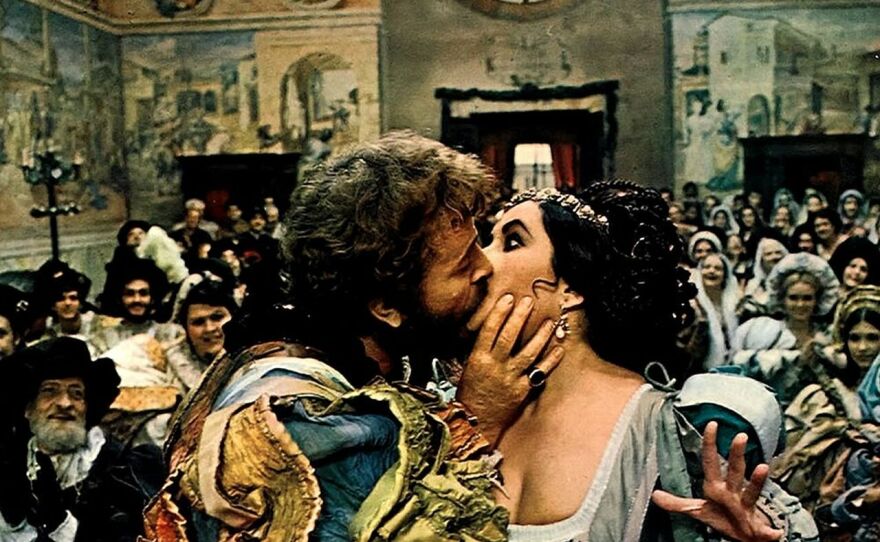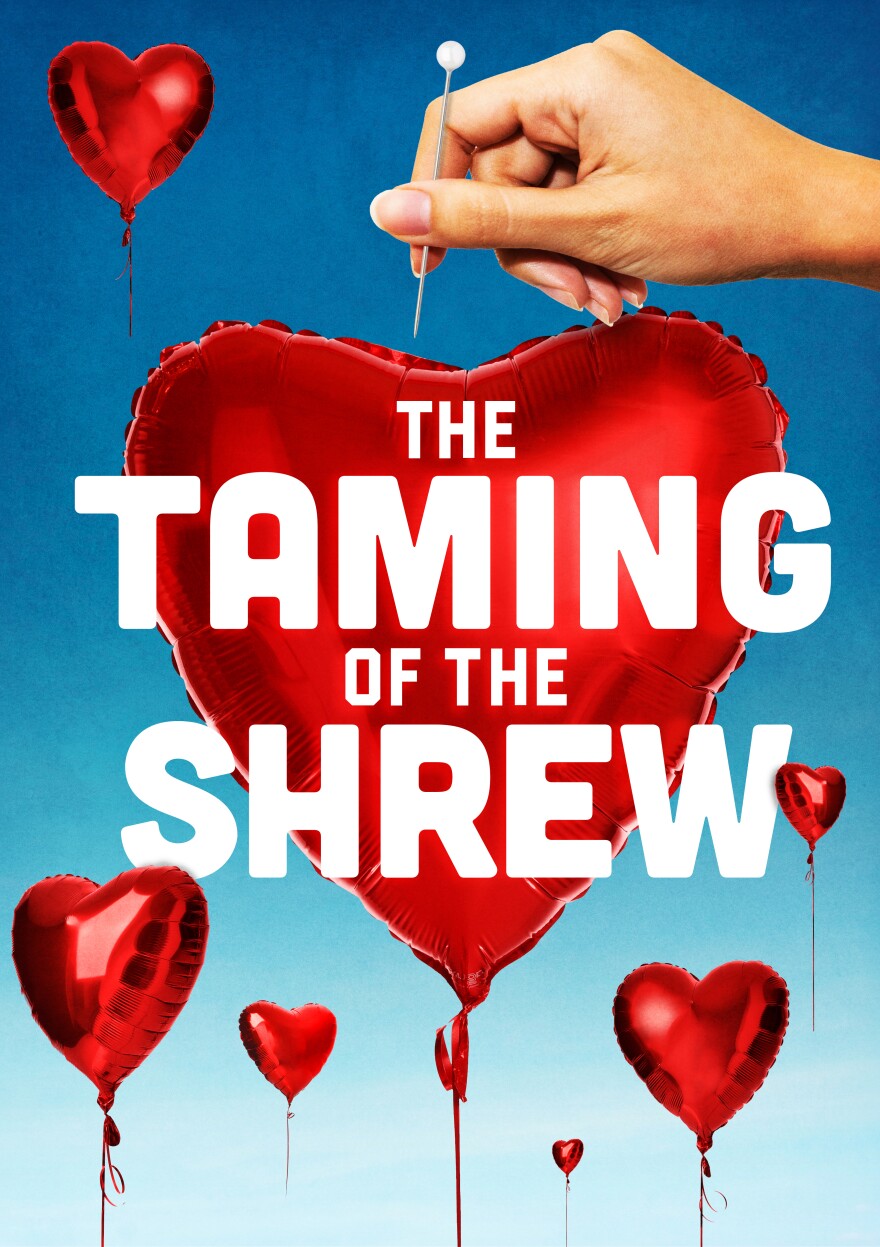On Sunday, The Old Globe Theatre kicks off its Summer Shakespeare Festival with the Bard's famous battle of the sexes, "The Taming of the Shrew."
Scholars have labeled some of Shakespeare's work as "problem plays" because they do not fit neatly into either comedy or tragedy and the tone shifts from light to dark. Plays such as "All's Well That Ends Well," "Measure for Measure" and "Merchant of Venice" have a darkness that hangs over the comedy.
"The Taming of the Shrew," one of Shakespeare's earliest plays, was clearly labeled as a comedy when it first appeared in the late 16th century. It looks to the turbulent courtship of Petruchio and Katerina. Katerina's father is desperate to marry his eldest daughter off, and Petruchio seems the right man for the job. But, for modern audiences, the idea of taming the fiery Kate has turned this comedy into a problem play.
A misogynistic play or a play about misogyny?
"This is a play with a lot of baggage," director Shana Cooper said. "Every time I tell someone I'm directing it, they look at me like I'm crazy."
But Cooper loves the play and says how an audience responds to it rests on how they perceive it.
"Is this a misogynistic play, or is it a play about misogyny? I believe, as written, it's a play about misogyny," Cooper said. "But what that requires is an understanding of satire. And I think that something that we sometimes struggle with as a culture is understanding: OK, what role can satire play? How might it invite us to see ourselves, to laugh at ourselves, and then hopefully wrestle with things about ourselves that we think we need to change?"
Staging the play as a period piece would seem the easiest choice, allowing the audience to see it as something anachronistic from the past and possibly easier to accept. But Cooper has chosen to do the play in modern dress.
"Doing this play in a contemporary setting requires that you wrestle, I think, even more deeply with the problems the play presents," Cooper said. "It reminds us how much the struggles of this play and the struggles of gender and power are still in play for us. It's a political satire that led us to set the play in contemporary, modern dress. It's highly influenced by a lot of Mediterranean, high-fashion worlds and the world in which men wear a lot of colors. There's a peacocking happening, and so it's super colorful, very fun, but also expresses something about the absurd that I think is churning in the kind of exploration of hyper-heteromasculinity that's at the heart of Padua, which is the location of this play in Italy as originally set."
'Thy husband is thy lord, thy life, thy keeper'
One of the things that people struggle with most is Kate's final speech, in which she scolds the other women for not being better wives. "I am ashamed that women are so simple," she says. "To offer war where they should kneel for peace." She concludes: "And place your hands below your husband’s foot: / In token of which duty, if he please, / My hand is ready, may it do him ease."
Those lines may make contemporary audiences bristle, but, Cooper said, "if taken actually line by line and allowed to follow the argument of that text — which is one of Shakespeare's longest uninterrupted speeches — I think the argument that is being made is actually one for vulnerability, for the power of abandoning yourself to another human being. And I think Kate in that text is redefining what we think of as powerful. And I would argue we still are at a place in the world where we define power based on patriarchal terms. And I think it's a radical thing to redefine what it means to be powerful and think about how vulnerability might play a role, how letting down our guard and letting down our armor and actually being vulnerable to each other could be another way of thinking about power. "
That's why Cooper would like people to come to the play with new eyes and ears.
"If people have experienced this play in the past or they think they know what this play is about, they can just leave those bags at coat check and really just try to meet the play afresh," Cooper said. "What do they hear that feels like their world? What do they hear that sheds new light on their world or allows them to laugh at their world or think about their world differently? And, also, to be generous with ourselves, to remember that change is messy and hard and that people make mistakes along the way, and that Kate and Petruchio are deeply flawed protagonists, but that's what we can love about them. I feel like that's what can be a guiding light about them — is that we don't have to be perfect to lead the way into a better future, and being a little generous with ourselves and each other when we fail along the way and not give up."
"The Taming of the Shrew" kicks off The Globe’s Summer Shakespeare Festival on Sunday at the Lowell Davies Festival Theatre.

'The Taming of the Shrew' on screen
There are two film versions of "The Taming of the Shrew" that I would highly recommend. First, a lush, boisterous 1966 version directed by Franco Zeffirelli in which the then-married Richard Burton and Elizabeth Taylor played the battling couple with gusto. And the 1976 filmed stage play by San Francisco's A.C.T. Company done in a bawdy commedia dell'arte style with Marc Singer and Fredi Olster in the lead roles.
You can see Meryl Streep and Raul Julia in a documentary about Joseph Papp's 1981 Shakespeare in the Park production of the play. Comparing the subtle and not-so-subtle differences in interpretation reveals how differently the text can be played.
And there is an insightful discussion of the play in the article "In Defense of Shrew: It's Not Misogynistic" on the Global Shakespeare site.






